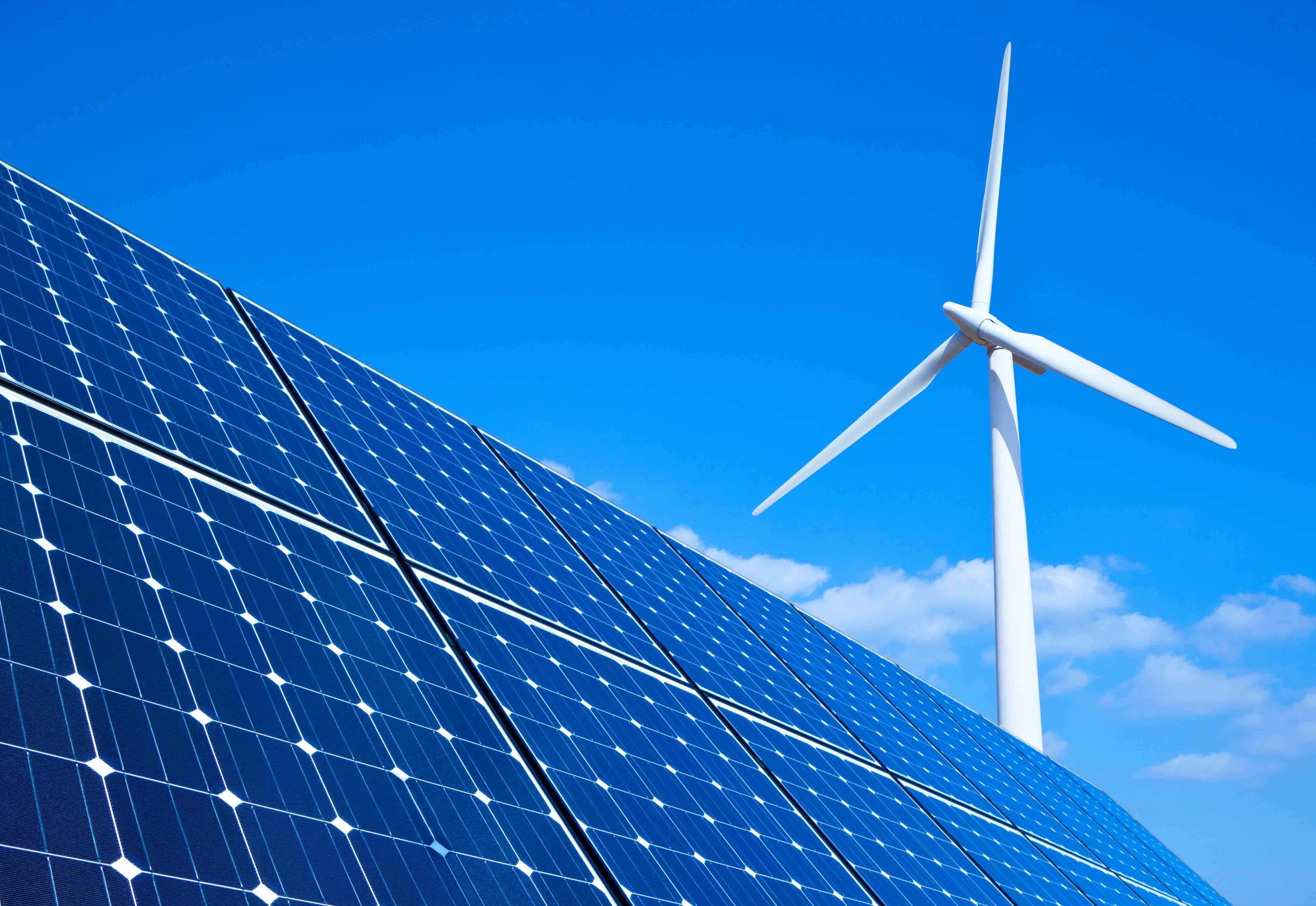As the global community becomes increasingly aware of the environmental impacts of fossil fuels, the focus on renewable and clean energy has never been more critical. Renewable energy sources, such as solar, wind, hydro, and geothermal, offer sustainable alternatives that significantly reduce greenhouse gas emissions and mitigate climate change.
This blog post explores:
-
The Rise of Renewable and Clean Energy
-
Benefits of Renewable and Clean Energy
-
Challenges and Opportunities
The Rise of Renewable and Clean Energy
Renewable energy sources are derived from natural processes that are replenished constantly. Unlike fossil fuels, which are finite and contribute to environmental degradation, renewable energy provides a cleaner and more sustainable way to power our world.
1. Solar Energy: Solar energy is one of the most abundant and accessible renewable resources for harnessing the sun's power. Solar panels convert sunlight into electricity, providing a clean and efficient energy source. With advancements in technology, solar power is becoming more affordable and widespread.
2. Wind Energy: Wind turbines capture and convert wind's kinetic energy into electricity. Wind energy is one of the fastest-growing renewable sources, with significant potential for large-scale power generation. It is particularly effective in regions with solid and consistent wind patterns.
3. Hydropower: Hydropower is a well-established and reliable renewable energy source that uses flowing or falling water. Large-scale hydroelectric dams and small-scale hydro projects contribute to the energy mix, providing a stable and clean power supply.
4. Geothermal Energy: Geothermal energy taps into the Earth's internal heat to generate electricity and provide direct heating solutions. This energy source is highly efficient and has a minimal environmental footprint, making it an attractive option for sustainable energy production.
Benefits of Renewable and Clean Energy
There are numerous compelling reasons to embrace renewable and clean energy sources:
-
Environmental benefits: By reducing reliance on fossil fuels, we significantly curb greenhouse gas emissions, mitigating climate change and its devastating effects.
-
Sustainability: Renewable resources are constantly replenished, ensuring a long-term, reliable energy source for future generations.
-
Energy independence: Many renewable energy sources can be harnessed locally, reducing dependence on foreign oil and promoting energy security.
-
Economic growth: The renewable energy sector significantly drives job creation and economic development. Investment in renewable infrastructure stimulates innovation and supports sustainable economic growth.
-
Cost-effectiveness: The cost of renewable energy technologies continues to decline, making them a competitive alternative to fossil fuels.
Challenges and Opportunities
While the benefits of renewable energy are clear, the transition from fossil fuels presents challenges that must be addressed:
Infrastructure and Investment: Developing the infrastructure required for renewable energy generation and distribution demands significant investment. Public and private sector collaboration is essential to funding and supporting these initiatives.
- Grid Integration: Integrating renewable energy into existing power grids requires advanced technologies and smart grid solutions to manage variability and ensure reliability.
- Policy and Regulation: Strong policy frameworks and regulatory support are necessary to encourage the adoption of renewable energy and facilitate the transition to a sustainable energy future.
Education and training are crucial to successfully navigating the transition to renewable energy. Energy sector professionals need the skills and knowledge to implement and manage renewable energy projects effectively. London Training for Excellence offers specialized training courses in Oil and Gas, and Energy and Sustainability to equip individuals with the expertise required to lead in the evolving energy landscape. These courses cover the latest developments in renewable energy technologies, project management, and sustainable practices, ensuring participants are well-prepared to contribute to a greener future.
In conclusion, renewable and clean energy are at the forefront of the global effort to combat climate change and promote sustainable development. Investing in renewable energy technologies and supporting education and training can create a more sustainable and resilient energy system for future generations.
Written by London Training for Excellence Team
 All Courses
All Courses
 Accounting and Finance
Accounting and Finance Administration and Office Management
Administration and Office Management Business Administration
Business Administration Chemical Engineering
Chemical Engineering Communications and Public Relations (PR)
Communications and Public Relations (PR) Compliance and Legal
Compliance and Legal Construction Management
Construction Management Contract and Project Management
Contract and Project Management Customer Experience and Relationship Management
Customer Experience and Relationship Management Data Management and Business Intelligent
Data Management and Business Intelligent Digital Transformation
Digital Transformation Energy and Sustainability
Energy and Sustainability Health, Safety and Environment
Health, Safety and Environment Healthcare Management
Healthcare Management Hospitality & Tourism
Hospitality & Tourism Human Resources and Talent Development
Human Resources and Talent Development Industrial Manufacturing and Production
Industrial Manufacturing and Production Innovation and Artificial Intelligence (AI)
Innovation and Artificial Intelligence (AI) Leadership and Management
Leadership and Management Oil and Gas
Oil and Gas Procurement & Supply Chain Management
Procurement & Supply Chain Management Public Sector
Public Sector Quality and Productivity
Quality and Productivity Retail and E- Commerce
Retail and E- Commerce Sales and Marketing
Sales and Marketing Sports Event Management and Operations
Sports Event Management and Operations Strategy and Business Planning
Strategy and Business Planning Sustainability and CSR
Sustainability and CSR Learning Solutions
Learning Solutions
 About Us
About Us
 iLearn Blog
iLearn Blog
 Directory Calendar
Directory Calendar
 Contact Us
Contact Us
 All Courses
All Courses
 Accounting and Finance
Accounting and Finance Administration and Office Management
Administration and Office Management Business Administration
Business Administration Chemical Engineering
Chemical Engineering Communications and Public Relations (PR)
Communications and Public Relations (PR) Compliance and Legal
Compliance and Legal Construction Management
Construction Management Contract and Project Management
Contract and Project Management Customer Experience and Relationship Management
Customer Experience and Relationship Management Data Management and Business Intelligent
Data Management and Business Intelligent Digital Transformation
Digital Transformation Energy and Sustainability
Energy and Sustainability Health, Safety and Environment
Health, Safety and Environment Healthcare Management
Healthcare Management Hospitality & Tourism
Hospitality & Tourism Human Resources and Talent Development
Human Resources and Talent Development Industrial Manufacturing and Production
Industrial Manufacturing and Production Innovation and Artificial Intelligence (AI)
Innovation and Artificial Intelligence (AI) Leadership and Management
Leadership and Management Oil and Gas
Oil and Gas Procurement & Supply Chain Management
Procurement & Supply Chain Management Public Sector
Public Sector Quality and Productivity
Quality and Productivity Retail and E- Commerce
Retail and E- Commerce Sales and Marketing
Sales and Marketing Sports Event Management and Operations
Sports Event Management and Operations Strategy and Business Planning
Strategy and Business Planning Sustainability and CSR
Sustainability and CSR Learning Solutions
Learning Solutions
 About Us
About Us
 iLearn Blog
iLearn Blog Directory Calendar
Directory Calendar
 Contact Us
Contact Us















































 Course category
Course category Course Venue
Course Venue
